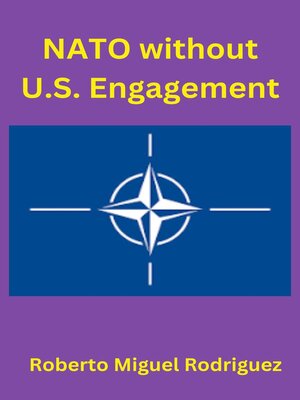
Sign up to save your library
With an OverDrive account, you can save your favorite libraries for at-a-glance information about availability. Find out more about OverDrive accounts.
Find this title in Libby, the library reading app by OverDrive.



Search for a digital library with this title
Title found at these libraries:
| Library Name | Distance |
|---|---|
| Loading... |
The North Atlantic Treaty Organization (NATO) has stood as the premier military alliance for more than seven decades, with the United States playing a pivotal role in its formation, strategic direction, and operational successes. As the largest and most powerful member of NATO, the U.S. has provided substantial military, financial, and diplomatic support, shaping the alliance's policies and ensuring its prominence on the world stage. However, the question of what NATO would look like without U.S. engagement—whether partial or total withdrawal—has become increasingly relevant in light of evolving global dynamics, shifting priorities, and changing leadership.
NATO without U.S. Engagement examines this critical hypothetical scenario and its far-reaching implications for global security, the defense capabilities of NATO members, and the future of the alliance itself. This book explores the consequences of a NATO where the United States no longer acts as the primary military and strategic force. How would member countries, particularly European nations, respond to the absence of U.S. leadership in terms of military commitment, funding, and political influence?
Through careful analysis, this book investigates the potential impacts on NATO's ability to carry out collective defense, manage crises, and engage in strategic operations across the globe. It delves into how European countries might strengthen their defense capabilities, the role of alternative alliances or coalitions that might emerge, and the potential for increased reliance on regional powers, such as the European Union or Russia, to fill the vacuum left by the U.S.
Furthermore, the book considers the broader geopolitical implications—would NATO remain an effective force for stability and peace, or would the absence of U.S. engagement lead to fragmentation, diminished influence, or a shift toward isolationism? How would global threats, from cyber warfare to terrorism to great power competition, be addressed without U.S. involvement in the alliance?
NATO without U.S. Engagement presents a thought-provoking exploration of a world where NATO is forced to adapt to a reality in which the United States is no longer at the helm. It encourages readers to think critically about the future of collective security, the changing nature of international alliances, and the role of global leadership in an increasingly multipolar world.







